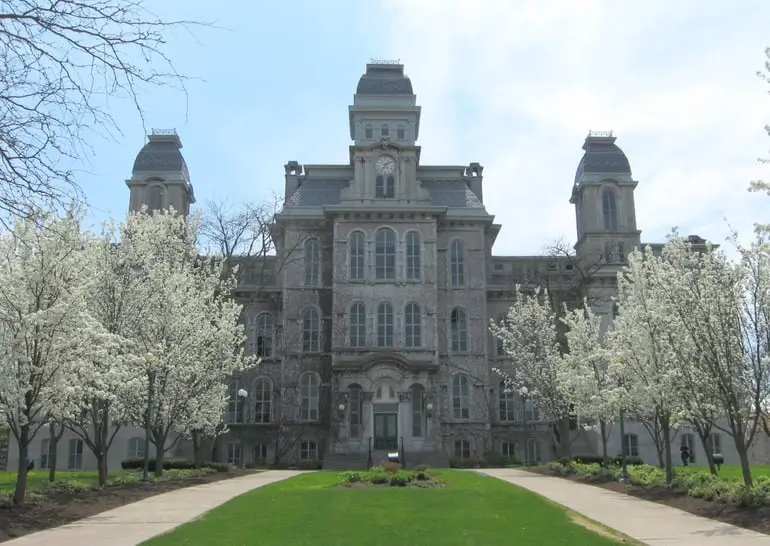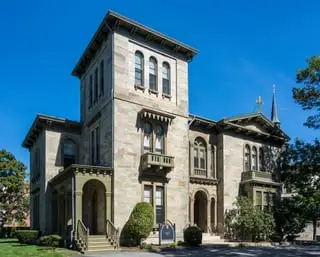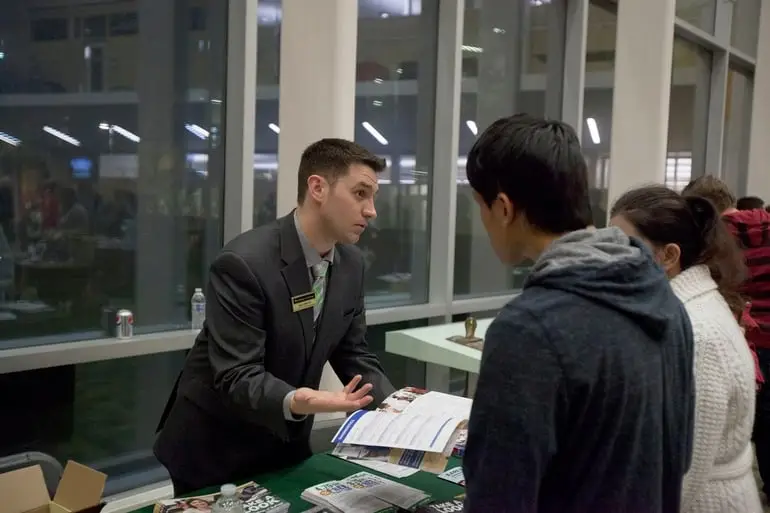WHAT YOU NEED TO KNOW ABOUT DEMONSTRATED INTEREST
WHAT IS DEMONSTRATED INTEREST, WHY DOES IT MATTER AND HOW CAN A STUDENT SHOW THEIR INTEREST?

WHAT IS DEMONSTRATED INTEREST:
- Demonstrated interest means different things to different colleges, but it generally shows how interested a student is in attending a particular college and gauges how likely they are to enroll there.. After the transcript, SAT/ACT scores, student resume, and college application essays, the next most important student attribute is how well they have demonstrated their interest in a school.
WHY DOES IT MATTER?:
- Colleges are driven by metrics. The more students they reject, the lower their admit rate and the more “selective” they are deemed to be. Selectivity is what it is all about in the college “game.” Our American notion of the (selective) private club was emphasized in a Groucho Marx joke: “I don’t want to belong to any club that will accept me as a member.” American society gravitates to belonging, joining, being a member. So it goes to follow that people believe if it is not easy to get into a college and a student gets in, he or she has hit the jackpot.If you’ve done any reading on the college process you will certainly understand the widely published and acknowledged “Acceptance Rates.” The general belief is that if XYZ college only admits 6% of all applicants, shouldn’t we want our kids to be part of that exclusive club? Of course, that notion is one of ongoing debate.Another metric that gets less notice is the yield rate. That is, after accepting students, what percentage of them actually enroll? The demonstrated interest conversation is all about the yield rate. Sure ABC college might accept only 15% of their applicants, but if only 1 out of 6 accepted students enroll, that is far different than if 1 out of 3 students enroll. Yield rates are one of the key figures that determine college rankings.Frankly, the top 15 or so schools in this country don’t worry too much about their acceptance rates, yield rates or demonstrated interest; they have plenty of applicants and a high acceptance rate. It’s the layers below those top tier schools that are keenly aware and anxious about filling their college spots.* The smaller the college, the greater the impact, and there are many prestigious schools in this category. Those schools concerned about demonstrated interest have two elements to consider: 1) Will enough of their targeted students enroll and 2) if that number is below their plan, are these full-pay students? Consider this math. If a school misses its estimates by just 50 full-pay students at a cost of $60,000 per year. That is a $3 Million dollar miss. So, in addition to metrics and rankings, there can be a real impact to the bottom line.
- What these colleges want to know is that if they accept a student, will they actually enroll? This is very hard to measure, especially for those top students they are targeting. Top students are likely to be attractive to other schools as well. So, if a college doesn’t see an indication that a student may actually enroll, then they will likely be rejected. Rejection is bad for the student, but if managed properly by the college, is viewed as a good thing in their rankings.


SHORT LIST OF SCHOOLS THAT CARE ABOUT DEMONSTRATED INTEREST BASED ON THEIR OWN PUBLISHED DATA:
- Syracuse University
- Hamilton College
- Providence College
- Skidmore College

WHAT YOU CAN DO TO SHOW DEMONSTRATED INTEREST:
- Make sure every opportunity to “touch” the school is recorded
- College fairs, campus visits, campus reps visiting your high school,
- Take the Supplemental Essays seriously and research those things that are not just from the college’s main page
- Apply Early Decision or Early Action if possible
- Establish contacts from the college – professors, sports, admission reps
- OPEN any communication the college sends you and click on it
- Campus visit fall of Senior year
- Second visit to a campus
- Contacting Admission Rep
- Meeting with Faculty
- Be sure to visit if the school is within 3-4 hours away by car.
- Follow the school on social media; share or re-tweet something of interest
- Interview when possible
- Submit your application early, prior to the deadline
- Write thank you notes
- Check to see regional reps’ schedule and try to meet even if they don’t visit your high school. “now” the school before you meet to discuss it.

SUMMARY:
Even if a college does not consider demonstrated interest important, it may be influenced by a supplemental essay on why a student wants to attend. A well thought out and detailed essay can show that the applicant understands what makes the school unique and a good fit. As I did research for this post, I was surprised to find how “random” the demonstrated interest element was for each school. Like most pieces of the college application process, it reinforces that there are general guidelines and that research for individual schools is necessary.
*To see if your college rates demonstrated interest as either considered, important or very important, check out their common data set by googling College Name Common Data set and look at: C) FIRST-TIME, FIRST-YEAR (FRESHMAN) ADMISSION area. Schools that may be ranked similarly in a Fiske Guide may have completely different views of the importance of demonstrated interest.
If you have an early high school student and want to get started on the right path, contact us at 914-273-2353, nschwartz@collegeplanningofwestchester.com or visit us at: www.collegeplanningofwestchester.com






